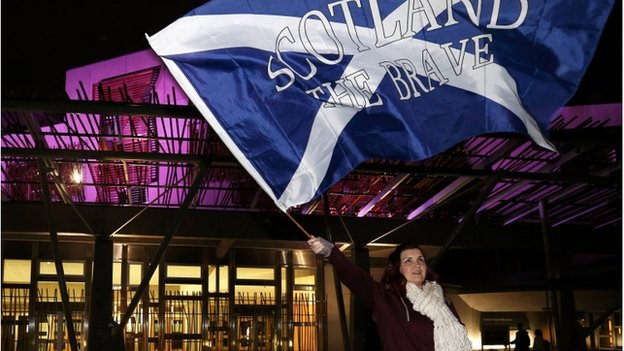
Politicians in England and Scotland are set to consider how the UK will be governed in the future after voters rejected Scottish independence. In Manchester, delegates at Labour’s conference gather as the party forms its response to the “No” vote fallout. Former Prime Minister Gordon Brown is to speak in Fife on the lessons to be drawn from the referendum campaign. And the SNP faces a change of leadership after First Minister Alex Salmond announced he is to stand down. Thursday’s result has already seen significant disagreement over the timing and extent of further devolution. Labour leader Ed Miliband has made it clear that he is not likely to sign up to Prime Minister David Cameron’s proposals to give new powers to English MPs. He instead wants a nationwide constitutional convention to come up with ideas, convening next autumn. Prime Minister David Cameron is proposing a system where only MPs from England would vote on English issues in Parliament. He has also said the three main Westminster parties will deliver their campaign pledge to boost the powers of Scotland’s devolved parliament. But, by linking the promise of further devolution to Scotland with the question of “English votes for English laws”, some in Labour fear Mr Cameron is setting them a trap, said BBC political correspondent Robin Brant. ‘Voices heard’ The prime minister has asked Lord Smith of Kelvin, who led Glasgow’s staging of the Commonwealth Games, to oversee the process to take forward the commitments, with new powers over tax, spending and welfare to be agreed by November, and draft legislation published by January. He has also spoken of the implications for the other nations of the UK, and said “millions of voices of England must also be heard”. Mr Miliband has said Labour also wanted “significantly greater devolution of power in England”, but said it was important not to offer a “knee-jerk reaction”. Source : BBC Online

